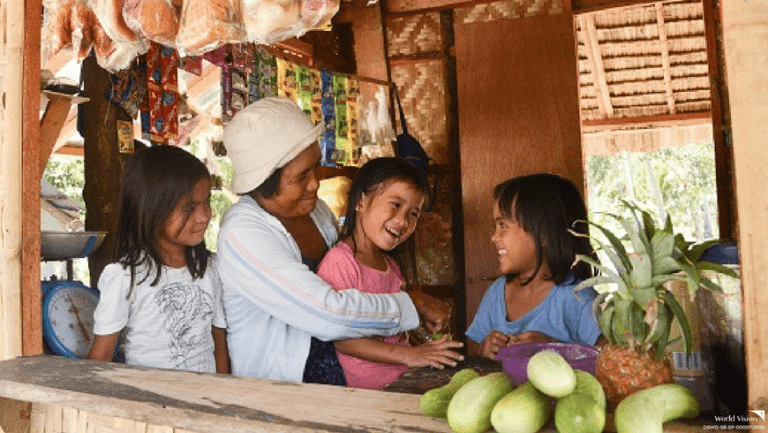Health & Nutrition
Keeping Children Healthy

Lack of access to health services and proper nutrition prevent children from reaching their full potential. To keep children from diseases and malnutrition, World Vision initiate projects to ensure families eat nutritious food, have access to clean water, enjoy quality health services, and are well-informed about infectious diseases like TB, HIV, and AIDS.
World Vision’s health initiatives start from conception, where we educate pregnant and lactating mothers about proper infant and young child feeding (IYCF) practices. This year, 9,979 pregnant women and lactating mothers with children zero to 23 months were trained on IYCF. We also reached out to 894 community health workers, volunteers, and peer educators so they can conduct IYCF trainings in their communities.
To address malnutrition, World Vision continues to teach parents and caregivers proper and practical feeding, health, and hygiene practices. In the past year, we successfully rehabilitated 730 children through the Positive Deviance/Hearth approach, locally known as Pinoy Nutrition Hub (PNH).
Through the Channels of Hope (COH) program, we worked with schools, local government units, and faith-based organizations to provide children and youth aged 12 to 17 with relevant information about HIV and AIDS. Likewise, we continue to mobilize TB task forces that can identify cases of tuberculosis in their communities and help patients receive appropriate treatment.
THE JOY OF GOOD HEALTH
Anabelle would spend an average of P250 per day to support her children’s medical needs. It worried her and her husband especially when Jomar, their eldest son, was about to enter pre-school.
To help her children be healthier, she enrolled her sons to World Vision’s Pinoy Nutrition Hub (PNH), a nutrition-focused program that aims to rehabilitate malnourished children in their own homes. During the 12-day workshop, Anabelle learned how to prepare balanced meals to ensure sustainability of feeding even after the end of the sessions.
“Cooking nutritious meals is new to me but I am committed to learn and apply it in our home for my children,” Anabelle expressed. “A healthy body is the least that I can provide to them.”
Families enrolled in PNH also received vegetable seedlings. They used it to grow a garden in their backyard where they can source fresh vegetables and crops. Anabelle’s vegetable garden is an indication that nutrition feeding is being sustained after the PNH sessions. READ FULL STORY
First 1,000 Days
World Vision and the Crowd-Based Monitoring of Milk Code Compliance (CMMCC) project join breastfeeding advocates in lauding the Congress for the passage and enactment of Republic Act 11148 or the “Kalusugan at Nutrisyon ng Mag-Nanay Act.” The law aims to provide health and nutrition services to children in the first 1,000 days of their lives, which is considered the “window of opportunity” that can determine the child’s lifelong health. During this stage, it is crucial to ensure that infants receive only breastmilk from their mothers for at least six months, and are given proper complementary food with continuous breastfeeding up to 2 years and beyond.
We aim to

Increase the protection of children 0 to 18 years old from tuberculosis, HIV and AIDS

Improve the nutritional status of children aged 0 to 59 months
We keep children safe and healthy
Pinoy Nutrition Hub addresses malnutrition by rehabilitating malnourished children using local and affordable means. We teach parents and caregivers good practices for feeding, proper hygiene and health care.
Channels of Hope for HIV organizes local volunteers as trainers to sensitize communities on HIV and AIDS. We create local plans to promote community action against the spread of these diseases.
Social Mobilization on TB gathers TB Task Forces together to identify sick people and to refer them to health centers for free diagnostic and treatment services. TB Task Forces also monitor the completion of treatment and advocates for support from stakeholders and relevant government agencies.



